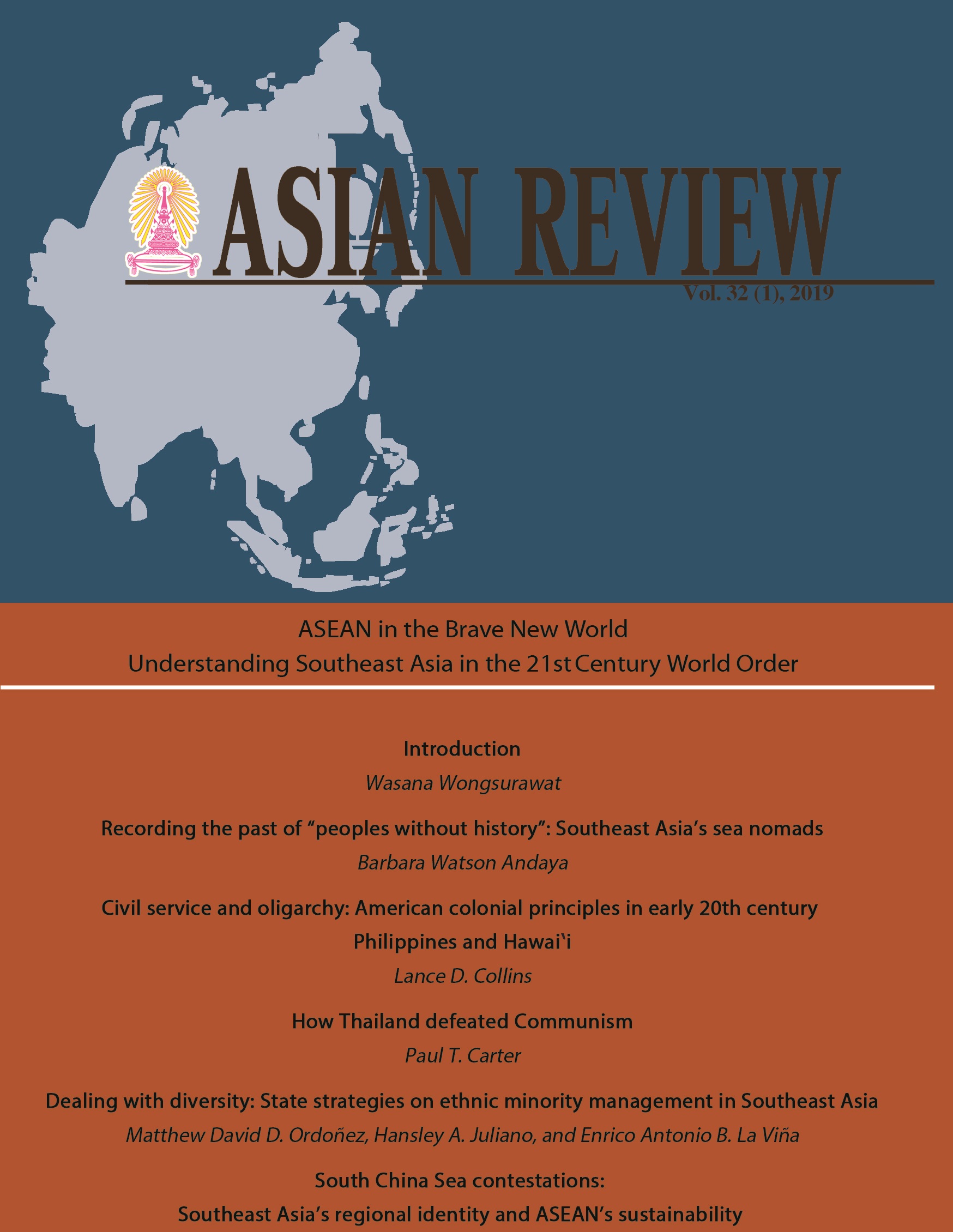Civil service and oligarchy: American colonial principles in early twentieth century Philippines and Hawai‘i
Keywords:
civil service, public workers, merit principle, colonialism, Philippines, Hawai‘iAbstract
This paper surveys the history of the introduction of an American-style merit-principle in the creation of a classified civil service system in the Philippines and Hawai‘i. The paper illustrates how the implementation of the idea of the “merit principle” in civil service and in organizing public workers in the Philippines and Hawai‘i was undermined by opposing forces within the American colonial governing apparatus. The Philippines was an early adopter of the Progressive-era “merit principle” reforms being pushed in the United States proper while Hawai‘i was one of the last—implemented halfway through the New Deal era. This paper attempts to understand why the historical establishment of this type of civil service occurred in entirely different historical legal periods and what the consequences of the historical formation are presently.
References
Anderson, Benedict. 1988. “Cacique Democracy and the Philippines: Origins and Dreams.” New Left Review 169: 3-33.
Bertelli, Anthony and Laurence Lynn. 2006. Madison’s’ Managers: Public Administration and the Constitution. Baltimore: John Hopkins University Press.
Cullinane, Michael. 2003. Illustrado Politics: Filipino Elite Responses to American Rule, 1898-1908. Quezon City: Ateneo de Manila University Press.
Endriga, Jose. 1985. “Stability and Change: Civil Service in the Philippines.” Philippine Journal of Public Administration 29(2) : 141-174.
Endriga, Jose. 2001. “The National Civil Service System of the Philippines.” In Civil Service Systems in Asia, edited by John P. Burns and Bidhya
Bowornwathana. Cheltenham: Edward Elgar.
Escalante, Rene. 2007. The Bearer of Pax Americana: The Philippine Career of William H. Taft, 1900-1903. Quezon City: New Day Press.
Hawaiian Commission. 1898. Report of the Hawaiian Commission, Appointed in Pursuance of the “Joint Resolution to Provide for Annexing the Hawaiian
Islands to the United States, Approved July 7, 1898.” Washington, D.C: Wentworth Press.
Hayden, Joseph. 1942. The Philippines: A Study in National Development. New York: Macmillan.
Howe, Daniel Walker. 2007. What Hath God Wrought: The Transformation of America, 1815-1848. New York: Oxford.
Johnson, Donald and Michael Miller. 1986. Hawaii’s Own: A History of the Hawaii Government Employees Association. Honolulu: HGEA.
Mangahas, Joel and Jose Sonco. 2011. “Civil Service System in the Philippines.” In Public Administration in Southeast Asia, edited by Evan
Berman. London: CRC Press.
McCoy, Alfred and Francisco Scarano. 2010. Colonial Crucible: Empire in the Making of the Modern American State. Quezon City: Ateneo de Manila
University Press.
Philippine Commission. 1900. Report of the Philippine Commission to the President. Washington, D.C.: Gov’t print. off.
Philippine Constitutional Convention. 1934-35. Journal of the Constitutional Convention of the Philippines. Manila.
Pratt, Richard and Zachary Smith. 2000. Hawai‘i Politics and Government: An American State in a Pacific World. Lincoln, NE: University of Nebraska Press.
Reyes, Danilo. 2011. “History and Context of the Development of Public Administration in the Philippines.” In Public Administration in Southeast Asia, edited by Evan Berman. London: CRC Press.
Rohr, John. 1986. To Run a Constitution: The Legitimacy of the Administrative State. Lawrence, KS: University of Kansas Press.
Downloads
Published
How to Cite
Issue
Section
License
Published articles are under the copyright of the Instiute of Asian Studies, Chulalongkorn University. Partially or totally publication of an article elsewhere is possible only after the consent from the editors.







